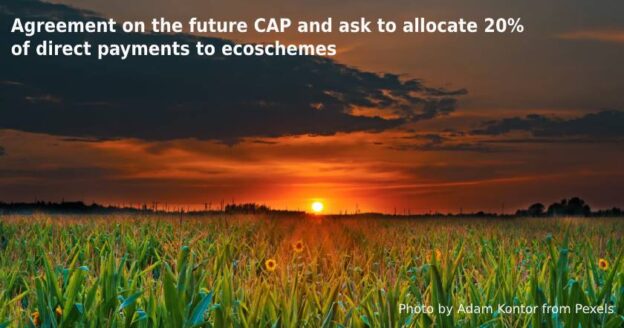The Ministers of Agriculture of the European Union have reached this Wednesday, October 21th, an agreement on the rules of the Common Agricultural Policy (CAP) that will come into force in 2023 and in which they protect by reserving 20% of direct payments to new eco-schemes.
After 42 hours of negotiations, the Member States have set their red lines for the discussions that are to begin in the coming weeks with the European Parliament.

The biggest sticking point between the Member States has been the characteristics of the new aid to farmers and ranchers who want to go beyond the mandatory requirements and take additional measures in favour of the climate and the environment. Finally, the Twenty-seven have agreed to dedicate 20% of direct payments to the so-called eco-schemes.
«In my opinion, there are two vital aspects: mandatory eco-schemes are key. And second, a mandatory minimum budget »
Julia Köckner (German Minister of Agriculture)
The introduction of this lower limit has generated many doubts, especially due to the possibility that producers cannot comply with the additional climatic criteria and it is not possible to distribute the funds reserved for these cases. The document approved by the community partners provides for a series of flexibility measures that have finally convinced the community partners.
Specifically, the agreement of the Ministers of Agriculture contemplates that, during the first two years of application (2023 and 2024), funds for unspent eco-schemes from a percentage of 10% can be dedicated to other interventions.
The new common agricultural policy will not enter into force until 2023, to give Member States time to adopt the new provisions. In any case, it will have a budget for the next seven years of 390,000 million euros, of which 291,100 million are planned for direct payments from the European Agricultural Guarantee Fund (EAGF) and 95,500 million in aid from the European Agricultural Fund for Rural Development (EAFRD).
